calsfoundation@cals.org
Green Hill Jones (1842–1924)
Green Hill Jones was an African-American politician and Free Will Baptist minister in Chicot County. Born into slavery, Jones served in the Union army during the Civil War and received an education in the North following his discharge. Upon returning to Chicot County, he became county treasurer and county assessor and served two terms in the Arkansas General Assembly. Throughout his adult life, he was known as G. H. Jones, Greenhill Jones, Green Hill Jones, or Hill Jones. However, in an interview with the U.S. Pension Office, he stated that his true name when he attained his freedom was Green Hill Jones Haywood.
Born a slave in Maury County, Tennessee, on December 18, 1842, Green Hill Jones was part of the vast estate of Colonel William Polk of North Carolina, who died in 1834. His daughter, Susan Polk, inherited an undetermined number of slaves, 20,000 acres of Tennessee land, and bank and railroad stock upon her marriage in 1842 to Kenneth Rayner, a North Carolina Whig congressman. The inheritance included Jones’s mother, with Jones to be born later that year. In 1846, Rayner purchased a 538-acre plantation on Grand Lake in Chicot County. That year, four-year-old Jones, his mother, and other slaves were sent to the plantation. On the eve of the Civil War, there were seventy-two slaves on the 1,000-acre Rayner Plantation, which produced a modest 543 bales of cotton per year.
Little is known about Jones’s time as a slave except that he was a field hand and had scars on his thighs from a whip—likely from an overseer. During the Civil War, Jones was used (in his words) “as a servant to my master and Q[uarter] M[aster] department hauling” for the Confederacy. The details of his freedom are not known, but in August 1863 the twenty-year-old “Hill Jones” joined the Third U.S. Colored Heavy Artillery, Company F at Memphis, Tennessee. The unit primarily served garrison duty at Fort Pickering, defending Memphis and western Tennessee, but Jones was hospitalized for smallpox during the war. On furlough in March 1866, a month before his discharge, Jones visited his mother in Chicot County. There, wearing his Union uniform, Jones was ambushed—by people he described variously as “parties in the Confederate Army” and “bushwhackers—and slightly wounded by a shot in his hip.
Following his discharge at Memphis on April 30, 1866, Jones moved up the Mississippi River near Cairo, Illinois, and New Madrid, Missouri. Jones became affiliated with the Free Will Baptist Church’s Cairo Mission. Known for its anti-slavery advocacy before the Civil War, the church founded the Cairo Mission in 1865 to evangelize to freedmen. In 1868 and 1869, Jones taught at the Freedman School at New Madrid. In 1869, Jones was ordained into the church at Mound City, Illinois. A year later in Missouri, he married Frazella Sting Battiste.
Illiterate before the war, Jones later learned to read and write, likely through his connection to the church. From 1870 to 1873, he continued his studies as a preparatory student at the Free Will Baptist–affiliated Hillsdale College in Hillsdale, Michigan. Upon graduation, he taught and ministered to freedmen at Paducah, Kentucky.
In 1873, Jones returned to Chicot County. While the 1880 census lists him as a farmer, he was also a Free Will Baptist missionary with the Cairo Quarterly Meeting (QM). Church records are unclear and incomplete, but Reverend Jones pastored the Rising Sun (sometimes Risen Sun) Free Will Baptist Church. Around 1889, with the Free Will Baptist missions growing in Chicot County and northeastern Louisiana, Jones co-founded the Bon Eagle QM. For the next twenty years, he pastored several churches around Grand Lake and Eudora—Rising Sun at Grand Lake (1876–1877, 1889–1897, 1899), Mt. Pisgah at Grand Lake (1898, 1903), Mt. Olive at Grand Lake (1902), and Sweet Home at Eudora (1906–1907).
African-American Free Will Baptist churches seem to have declined in membership in the early twentieth century. It appears that many of the Bon Eagle churches folded or changed denominational affiliation. A Risen Sun Baptist Church at Grand Lake, affiliated with the National Baptist Church, was holding services in 1938, suggesting that the congregation moved its affiliation to the larger African-American Baptist denomination. As late as 2006, the church was still standing on Highway 8 between Grand Lake and Eudora.
Little is known about Jones’s political career, but in 1874, a year after his return to Chicot County, he was elected as county treasurer on the Republican ticket. Two years later, he served as county accessor. Chicot County, with a large African-American majority, continued to elect Republican candidates into the early 1890s. Jones was elected to the General Assembly in 1884 and 1888 as rural populists and Republicans aligned themselves against entrenched Democrats. The 1889 session of the General Assembly saw a Democratic-sponsored election reform. The bill passed the Senate but failed in the House. However, a similar bill passed in 1891. Centralizing voting power with Democrats, the law contributed to the break in racial alliances between white populists and African-American Republicans. The 1891 law and the subsequent poll tax suppressed African-American voter turnout. In Chicot County, black voter turnout fell from over seventy percent in 1888 to just over twenty percent in 1894.
A year after the passage of the 1891 law, Jones stated in a message to the General Conference of Free Baptists held in Lowell, Massachusetts: “As colored people of the South, appreciating most fully your work in the past in securing our deliverance from slavery, we would now appeal to you that you still stand by us until we have secured to us the privileges of franchise which are nominally accorded but not secured to us by our government.”
Jones’s wife died in March 1897. The couple had no children. On December 16, 1897, he married Jane West, a widow. They had no children. When Jones died on November 12, 1924, he owned 120 acres of farmland and town lots in Eudora. He is buried in Mason Cemetery south of Eudora.
For additional information:
Burgess, Rev. G.A. Free Baptist Cyclopedia: Historical and Biographical. Chicago: Free Baptist Cyclopedia Co., 1889. Online at https://catalog.hathitrust.org/Record/003136574 (accessed April 20, 2021).
Cantrell, Gregg. Kenneth and John B. Rayner and the Limits of Southern Dissent. Urbana: University of Illinois Press, 1993.
Freewill Baptist Register, 1873–1911. http://fwbhistory.com/?page_id=628 (accessed April 20, 2021).
Male Enrollment Ledger, 1870–1873. Hillsdale College Archives, Hillsdale, Michigan.
McCollom, Jason. “The Agricultural Wheel, the Union Labor Party, and the 1889 Arkansas Legislature.” Arkansas Historical Quarterly 68 (Summer 2009): 157–175.
Minutes of the General Conference of Free Baptists, 1889–1904. Online at https://catalog.hathitrust.org/Record/008635038 (accessed April 20, 2021).
Pension File of Hill Jones [Green Hill Jones], 122.6803, 960.154, 3rd USC Heavy Artillery, RG 15, National Archives and Record Administration, Washington DC.
Wintory, Blake. “African American Legislators in the Arkansas General Assembly, 1868–1893: Another Look.” In A Confused and Confusing Affair: Arkansas and Reconstruction, edited by Mark Christ. Little Rock: Butler Center Books, 2018.
Blake J. Wintory
Lakeport Plantation
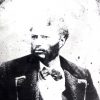 African American Legislators (Nineteenth Century)
African American Legislators (Nineteenth Century)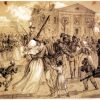 Black Union Troops
Black Union Troops Military
Military Politics and Government
Politics and Government Post-Reconstruction through the Gilded Age, 1875 through 1900
Post-Reconstruction through the Gilded Age, 1875 through 1900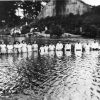 Religion
Religion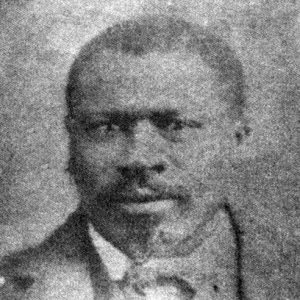 Green Hill Jones
Green Hill Jones 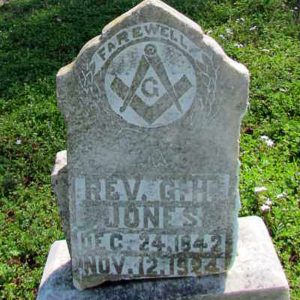 G. H. Jones Gravesite
G. H. Jones Gravesite 



Comments
No comments on this entry yet.